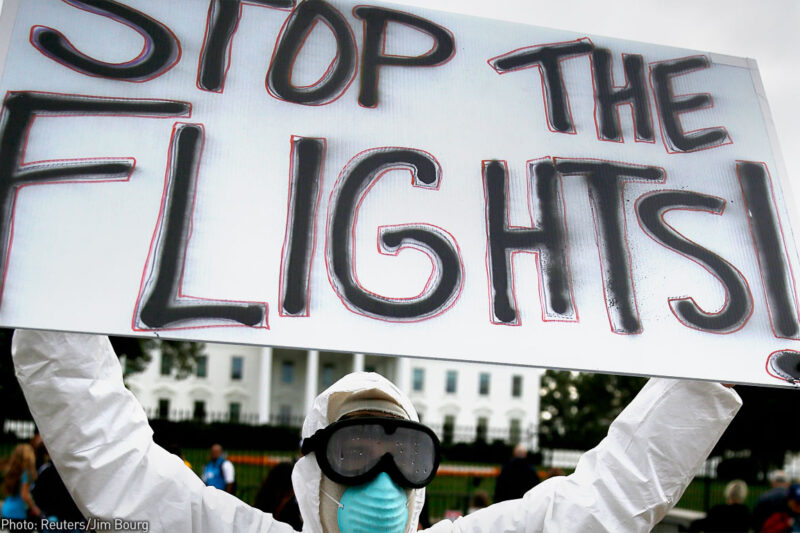Fear, Politics, and Ebola: Why the Ebola Quarantines Werenโt Only Unjustified, but Unconstitutional, Too


This is the foreword to a joint ภฯฐฤรลฟชฝฑฝแน๛โYale report released today about the American response to Ebola in 2014 finding that the quarantines imposed around the country were medically unjustified and unconstitutional.
A multitude of expert panels have been convened over the past year to draw lessons learned from the manifold global failures to respond to the Ebola epidemic in West Africa. Yet comparatively little attention has been paid to the widespread failure in the United States โ which did not experience an epidemic โ to appropriately manage public anxiety and support people returning from the affected region.
This report is a critical first step of an overdue national reckoning.
The Ebola epidemic firmly entered the American consciousness in October 2014 with the tragic death in Dallas of Liberian Thomas Eric Duncan. His infection, and the subsequent illness of two of his nurses at Texas Health Presbyterian Hospital, sparked disproportionate, nation-wide hysteria and outsized fear of an outbreak in the United States.
The report correctly places responsibility for the ensuing panic squarely at the feet of our nationโs political leaders. Through sheer or willful ignorance, or simple political expediency, many governors enacted quarantine measures and other restrictive policies that not only misled the public, but threatened to actually undermine โ rather than protect โ public health both at home and in Ebola-affected countries.
Our leaders were enabled by a fear-mongering mass media that also ignored established medical science, further stoking panic and compounding an already immense public disservice.
My own colleagues experienced the fallout first hand.
After working with Doctors Without Borders/Mรฉdecins Sans Frontiรจres (MSF) in Guinea, Dr. Craig Spencer returned home to New York in October 2014. When he developed the first signs of Ebola infection, he immediately self-isolated and informed local health authorities, which took swift action to safely hospitalize him. He followed strict protocols for returning aid workers that were based on firm medical evidence โ namely that asymptomatic individuals are not contagious. Before he fell ill โ and after โ Craig followed the guidelines to the letter. Yet he was vilified as a reckless liar and a threat to public health.
Kaci Hickox, a Doctors Without Borders nurse, returned to the United States the day after Craig was hospitalized. Although she displayed no symptoms, she was quarantined under a hastily arranged New Jersey state policy, notably enacted just days before mid-term elections. She posed no public health threat whatsoever. Yet fear, and perhaps politics, trumped science. Like Craig, she too was cruelly stigmatized.
Quarantine policies had a trickledown effect. After returning from Guinea I was not permitted to return to work for 21 days, despite not coming into direct contact with Ebola patients. For volunteers like me who take time off to work overseas, the restrictions effectively cut my field time in half. Quarantine measures and the additional restrictions and stigma they inspired were fundamentally paradoxical; they served as a disincentive for aid workers, thus impeding ending the epidemic at its source, the only way to truly prevent it from reaching our own shores.
Many field staff chose to remain in Europe until their 21-day incubation period had passed, or to stay isolated from family members, despite being symptom-free. At a time when traumatized aid workers needed emotional support, aid agencies faced significant hurdles caring for returned staff.
As this report makes abundantly clear, the Ebola virus is difficult to catch. In order for it to spread, a person must come into direct contact with the bodily fluids of a highly infectious individual or body. The authors lay out in plain language the scientific and medical facts. These facts were dutifully communicated by the nationโs leading medical figures during the peak of national hysteria in October and November 2014. But common scientific sense went largely unheeded.
Science, not misinformation and fear, must drive public health policy, including โ even especially โ when it is not politically expedient. This report serves as an indispensable recounting of a collective failure, and as a stark exercise in lessons learned. It is essential reading for the citizens of this country, and its elected leaders.


